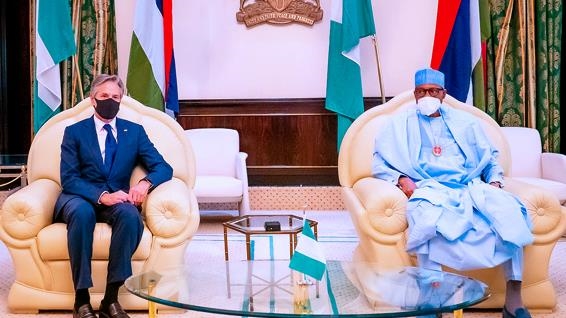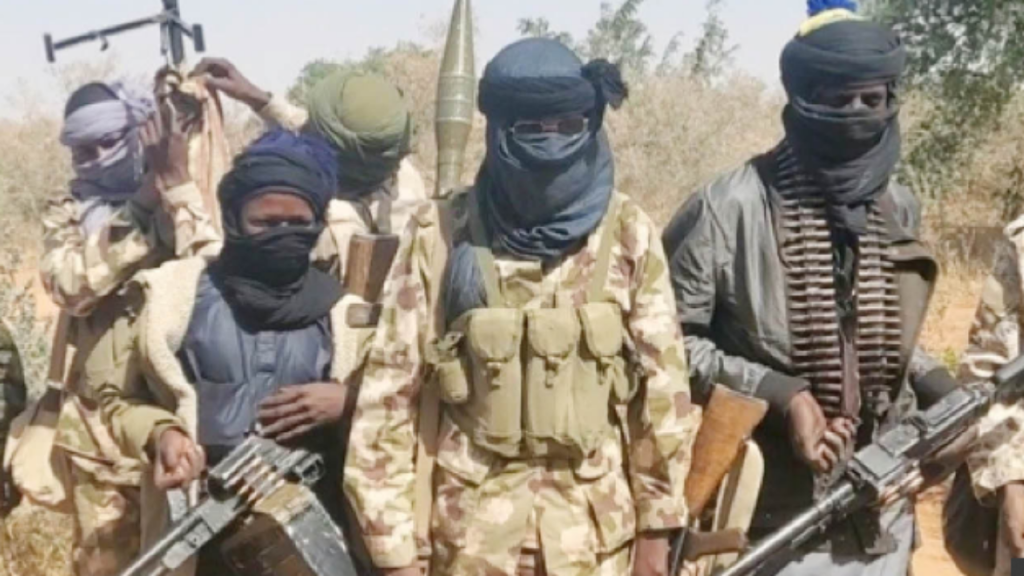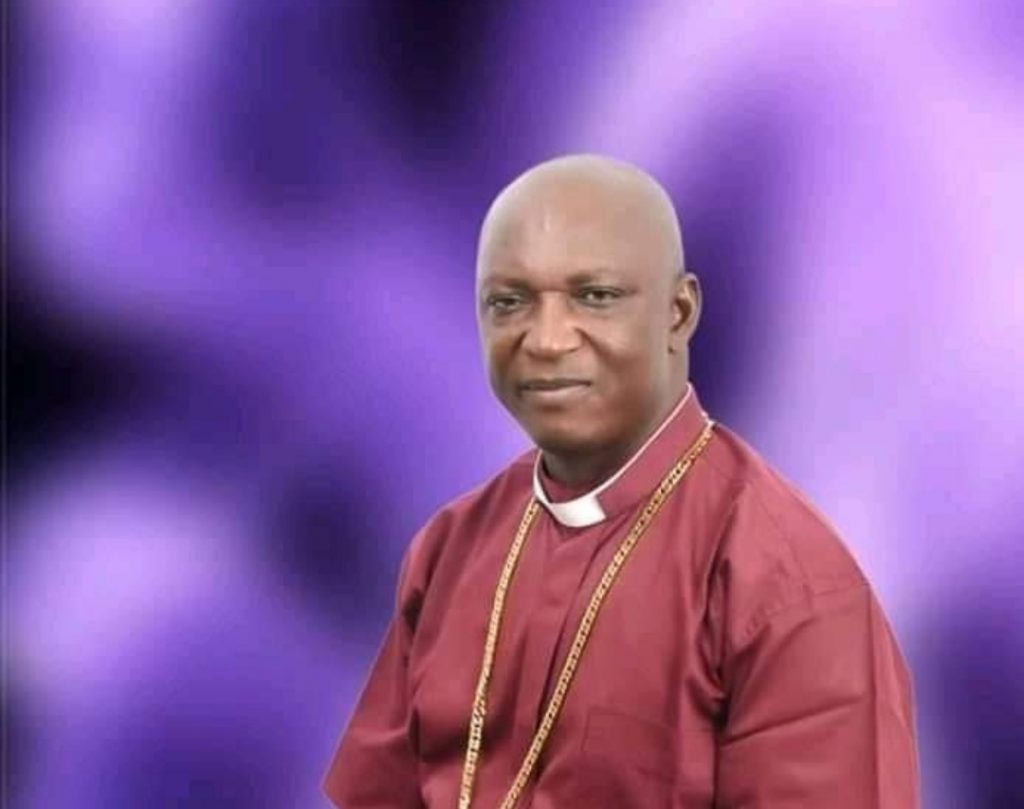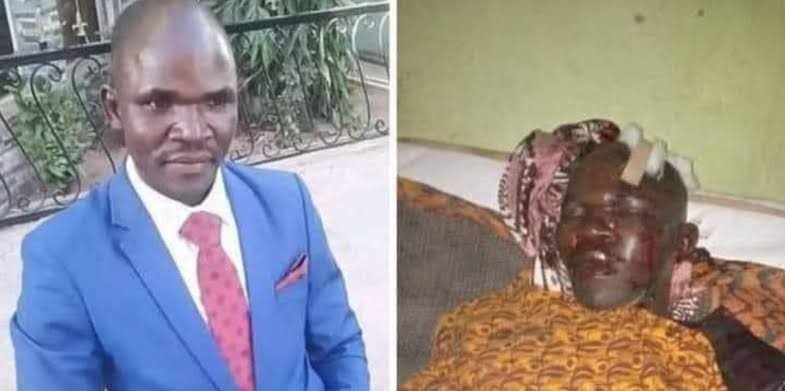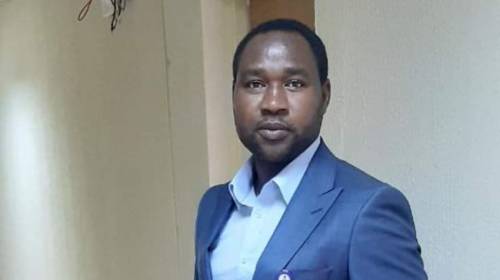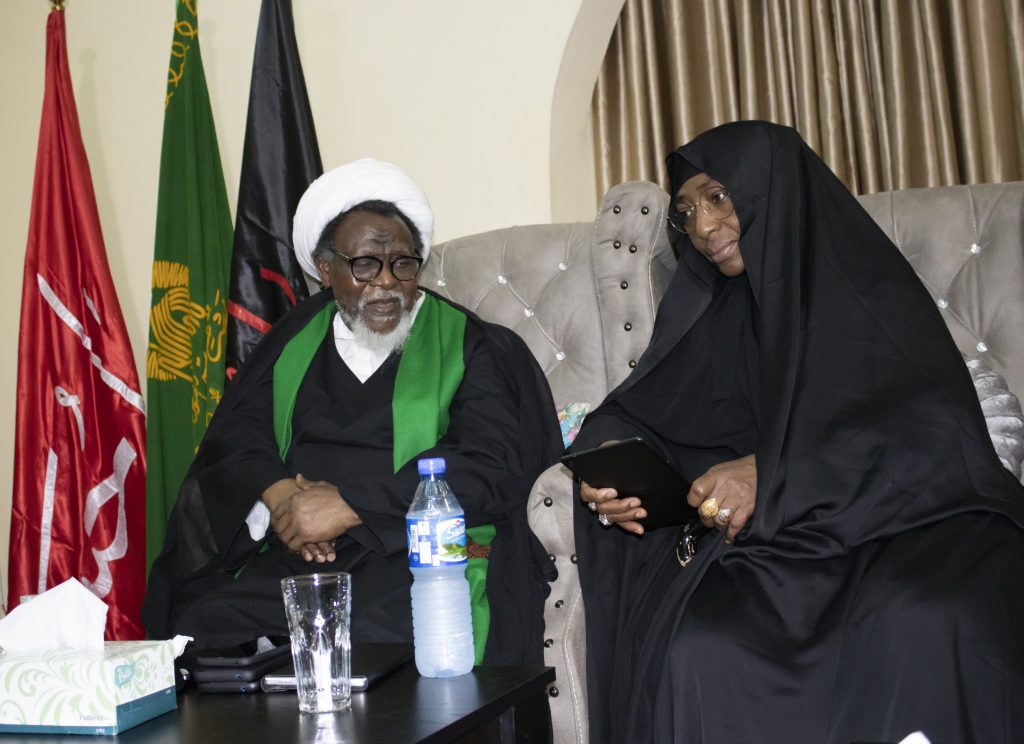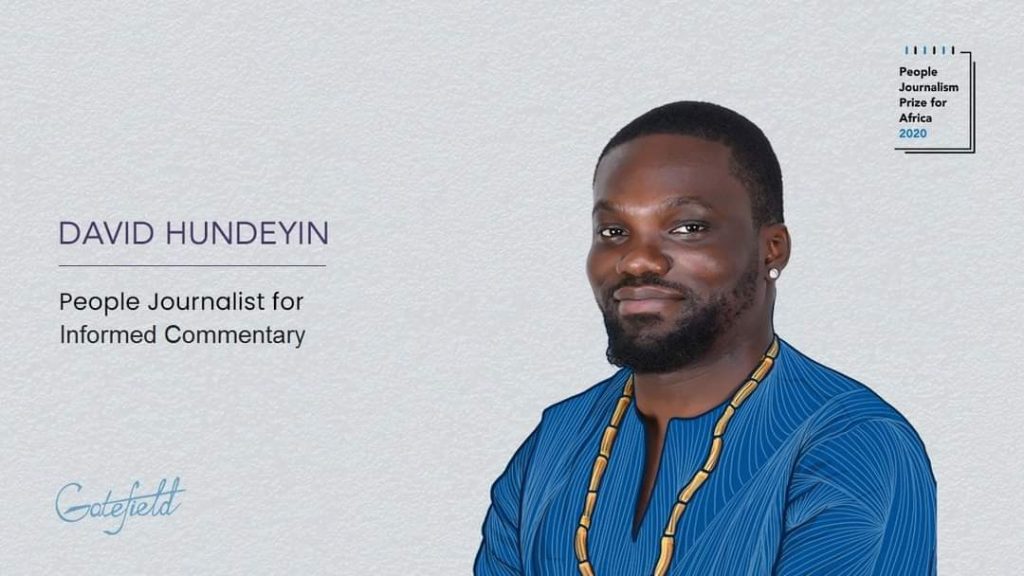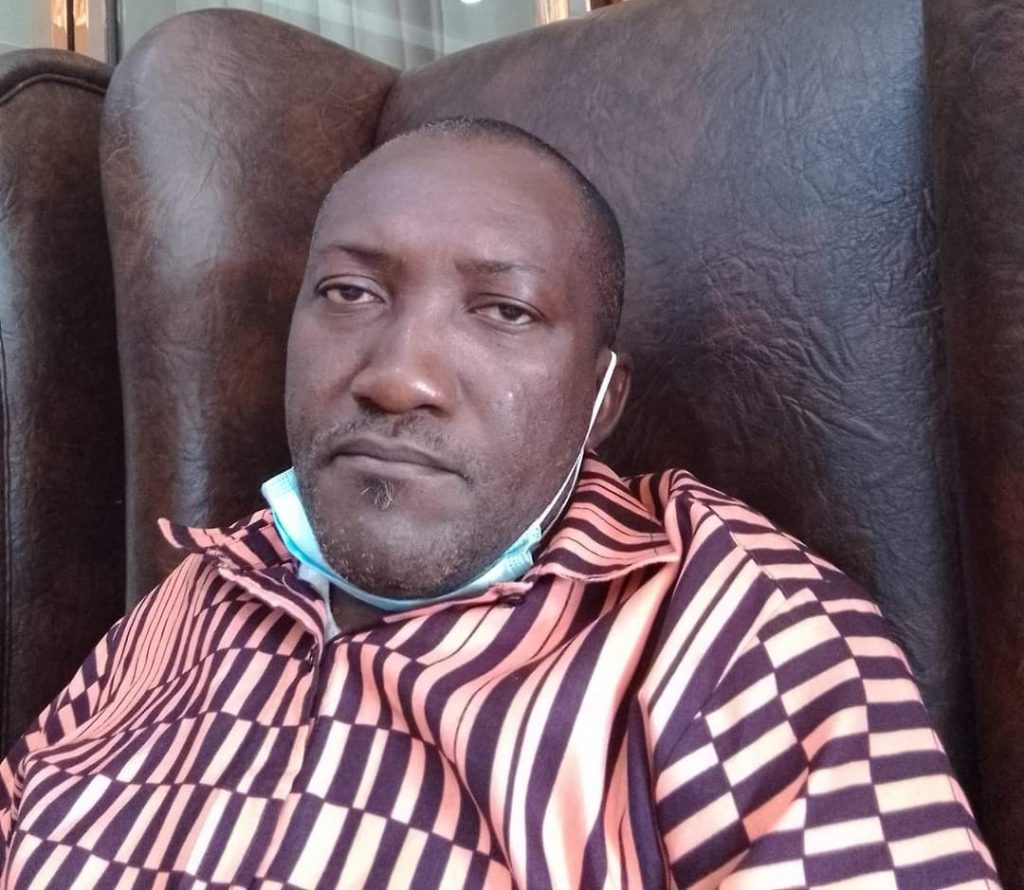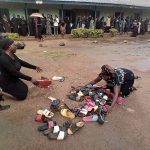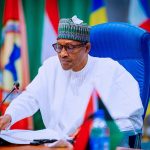In this report, Steven Kefas attempted to look at the recent decision of the American government to delist Nigeria from the blacklist of religious freedom violators, He spoke with Award winning investigative Journalist, David Hundeyin, The Kaduna state Chairman of the Christian Association of Nigeria (CAN), Rev Joseph Hayab and others on the subject matter.

File photo: terrorists operating in North West Nigeria
Christians in Zamfara state, North West Nigeria have been told to stop holding worship services and to shutdown churches or risk ferocious attacks by terrorists operating in the troubled state. The state has been ravaged by terrorists activities blamed on Fulani militias and other terrorists elements.
A police spokesman in Zamfara state, DSP Mohammed Shehu, confirmed the threat letter to Saharareporters, saying that “We are on top of the threat.”
“Yes, I can confirm that it’s true, a threat letter was sent to the Christians in Zamfara State to stop worship and to close churches.
“Actually the police informed the Christian leaders about the threat.
“Accordingly the CP has invited the leadership of the Christian Association of Nigeria (CAN) in the state to discuss security measures around the churches.
“In that regard, a special squad has been created by the CP to patrol and protect worshippers, especially on Sundays.
“Additionally, plain-clothes personnel have been deployed for intelligence gathering and to unravel those behind the threat letter,” he said.
The threat is coming few days after the U.S. government delisted Nigeria from its religious freedom blacklist, a decision the United States Commission on International Religious Freedom (USCIRF) said it finds ‘unexplainable’.
“USCIRF is disappointed that the State Department did not adopt our recommendations in designating the countries that are the worst violators of religious freedom,” said USCIRF Chair Nadine Maenza. “While the State Department took steps forward on some designations, USCIRF is especially displeased with the removal of Nigeria from its CPC designation, where it was rightfully placed last year, as well as the omission of India, Syria, and Vietnam. We urge the State Department to reconsider its designations based on facts presented in its own reporting.” The Agency said in a statement.
The announcement made by the U.S government on the removal of Nigeria from the CPC list preceded Secretary Blinken’s visit by 24 hours, this has caused some Nigerians to believe that politics and tactical lobbying from both parties may have instigated the decision of the U.S. government to remove Nigeria from the blacklist and not necessarily any improvement in religious freedom in the country.

Secretary Blinken and President Muhammadu Buhari during the former’s visit
Speaking on the removal of Nigeria from the religious freedom violators blacklist, in a report he titled “The Untold Stories of Religious Persecution in Nigeria”, the Chairman Christian Association of Nigeria (CAN) Kaduna state chapter, Rev. Joseph Hayab said the decision of the U.S. is appalling.

Rev Joseph Hayab, CAN Chairman Kaduna
“The US’s delisting of Nigeria from its list of violators of religious liberty is appalling, as the persecution of Christians is still at its peak. Besides, the Nigerian government hardly engages Nigerians to deliberate the challenges of insecurity, possibly because her own hands are not clean. The awful part is not only that the Nigerian government fails to engage Nigerians to find the way out of the insecurity the country is faced with, but that the government is known for blaming victims of insecurity for ‘not being careful enough,’ vindicating banditry and its perpetrators.
“Moreover, whenever any Nigerian openly speaks against the insecurity in the country, particularly the failure of government to tackle the bandits, he or she is branded as ‘antigovernment’, typifying why most pastors and bishops of megachurches in Nigeria are afraid to speak out. Thus, the U.S. State Department ignored the worsening insecurity in Nigeria, declaring that placing the country on the list of “Countries of Particular Concern” (CPC) for religious freedom could jeopardize the work of the US Office of International Religious Freedom in Nigeria.” Hayab said.
Rev. Hayab who was among those privileged to meet with the visiting secretary Blinken during his visit to Nigeria, said he expressed the disappointment of Christians in Nigeria over the U.S.’ decision to delist Nigeria from the CPC list.
“When I met with Antony John Blinken, the US Secretary of State, during his recent visit to Nigeria, as one of the five civil society representatives, I expressed how disappointed the Christians in Nigeria were following the US’ deletion of Nigeria from the CPC list. What I said to Blinken was that because Nigeria still has grave problems with religious persecution, his action was like that of a doctor discharging a patient from the hospital, even though the patient was critically ill. What that signifies is telling the patient to go home and die.
“Manifestly, the US was either ill-advised or purposely does not care about what happened to Christian in Nigeria. It also appears that the State Department does not fully comprehend that there is a grand plan by the current regime in Nigeria to impoverish and weaken the Christian community without letting the international community notice it. To achieve the grand plan, the government employed highly professional lobbyists to convince the State Department to arrive at such an unpopular decision, removing Nigeria’s name from the list of countries violating religious freedom.” He said.
“As a Nigerian, I do not wish our country evil, but the reality is that citizens are daily persecuted because of their religious leanings. When I read the statement that the US Secretary of State removed Nigeria from the CPC list, it seemed to me that he wanted to make a statement that would water down whatever tension there was before he arrived in Nigeria, as that statement was not issued until a day or two before his arrival.” Hayab said.
Hayab further stated that religious freedom cannot be said to have improved in Nigeria going by the realities on ground.
“For the record, Nigeria at this moment cannot be said to have improved in its handling of people and issues based on faith. Only a day before the meeting with Blinken, the bandits who kidnapped 66 worshippers at the Emmanuel Baptist Church (Kakau Daji, Chikun Local Government Area of Kaduna State) released a video showing themselves killing some of their captives.
“In the video, the bandits took five young men between the ages of 15 and 24 from among the kidnapped, acting as if they were to be released. When the victims came near to their homes, the bandits opened fire, killing two instantly. The third died later. All three have been buried by the church.
“In the same video, in which many of the captives in the bush were forced to appear, the bandits said they were attacking Christians and that Christians will suffer at their hands. How could a country where such a crime is ongoing without any tangible efforts by the government(s) to halt the evil be removed from the list of countries where religious persecution is a problem? Therefore, the decision has no basis. I add that when we talk about insecurity, there is often a misconception among Nigerians that it is a question of Muslims versus Christians, but I see what is happening to the Shi’ites as religious persecution as well.
“Today, we have so many IDP camps all over the country. Religiously motivated killings are taking place, as well as the religiously motivated sacking of communities by bandits. I can tell you categorically that those violations are ongoing. For instance, just this week, bandits in Zamfara State issued a threat to Christians to “shut down churches or risk attacks.” The story, reported by Sahara Reporters online on the 29th of November 2021, is said to have been confirmed by the State Police, saying that they were “on top of the threat.” The fact is that insecurity is growing by the day. So, let’s call a spade a spade.” He said.
Religious and Non-faith persecution in Nigeria
Religious Freedom and freedom to practice faith of choice has remained a source of major concern for Christians, some Muslim sects and other non-faith citizens in Nigeria.
In September this year, a Christian cleric, Rev. Shuaibu Yohanna was gruesomely murdered by Muslim youths in the ancient city of Kano following little misunderstanding bordering on his missionary works in the Muslim dominated state.
The slain Reverend, a Northeastern Evangelist of the New life Church, lived in a village called Massu in Sumaila local government area of Kano state with his wife and children.
Testimonies abound about his exploits in the vineyard of the Lord. Mobilising funds to build schools, providing potable water to both Christians and Muslims in his community.
His good works couldn’t make him immune to the barbarity of the Kano Muslim extremists who at the slightest or no provocation descend on their victims with utmost cruelty even before ascertaining their guilt.
Reverend Shuaibu, believed to have facilitated the conversion of many Muslims in the area to Christianity met his untimely death when some muslim youths, over 50 in numbers according to his daughter, accosted him and began butchering him like ram to be used for barbecue.
Eyewitness accounts revealed that the Missionary was killed because, one of his converts who recently got converted but neither attends church service nor mosque had a fight with his sister in-law (brother’s wife) and he hit her with a piston and she died.
Why would Reverend Shuaibu pay for a crime he didn’t commit? Why wasn’t he given the opportunity of being tried by a court of competent jurisdiction? Religious intolerance of course is the answer.

Rev Yohanna Shuaibu
Similarly, a self-proclaimed atheist, Mubarak Bala has been in a Kano detention facility over alleged blasphemous Facebook post even though his supporters believed he is being detained for being an atheist in a Muslim dominated state like Kano.
Bala who is also the president of Nigerian Humanist Association is being accused over a Facebook post criticizing prophet Muhammad an act that is considered blasphemy and can carry a death sentence in Nigeria’s mostly Muslim society where Sharia laws are enforced along with the common laws.

Mubarak Bala
Members of the Islamic Movement I Nigeria otherwise known as Shiites have repeatedly come under intense persecutions by the Nigerian state. In 2015 at least 348 members of the sect were killed by a combined team of the Nigerian police and military after some fracas with the convoy of then Chief of Army staff, Lt. Col Tukur Buratai. It’s national headquarters otherwise known as Hussainiya was also destroyed by the government. Leader of the movement, Sheik Ibraheem El-Zakzaky whose children were among those killed was arrested alongside his wife and detained for over five years despite several court rulings ordering their release.
In an interview with Iranian government owned Television, Sheikh El-Zakzaky narrated his ordeals in the hands of the Nigerian state.
“I have a total of 38 bullet fragments in my body, and also my wife has several gunshot on her stomach and thigh.” Zakzaky said.

Sheikh Ibraheem El-Zakzaky and Wife
The Nigerian government has made it a sort of point of duty to always attack the Zakzaky’s members whenever and wherever they are protesting or holding processions peculiar to their sectarian calendar.
In September, the sect said that 8 of its members were killed by the police in Abuja during an annual procession, an accusation the police denied even though images circulated on the social media proved otherwise.
What Some Nigerians think about the U.S.’ delistment of Nigeria from the CPC
Speaking exclusively to Middle Belt Times, popular award winning Investigative journalist, David Hundeyin, said that religious freedom violation in Nigeria has worsened since the country was designated a country of particular concern (CPC) by the Trump administration in the year 2020. Hundeyin who has repeatedly said he is faithless also described the delisting of Nigeria by the Biden administration as political.

David Hundeyin
“From my understanding, not only has the situation not improved since 2020, it has actually worsened. The delisting of Nigeria by Secretary Blinken to my eyes, is a strategic mistake driven by politics and lobbying, as against the force of reality, facts and verifiable data.
“I believe that there is a significant disconnect between urban Nigeria and the rest of the country, which is why to many urban Nigerians as well as to foreigners who only visit urban Nigeria when they come here, there appears to be no significant restriction on religious freedoms.
“What these people need to understand is that in rural Nigeria, particularly in the Middle Belt and the North, practicing Christianity or any other faith other than Sunni Islam can be, and often is a literal death sentence. That is no exaggeration.” He said
The “Conflakes for Jihad” author who is currently on exile over repeated threats to his life, also made reference to a publication titled “Silent Slaughter”, saying that the report speaks volume about the religious persecution ongoing in the Middle Belt region and other parts of Northern Nigeria.
“The report titled “Silent Slaughter: Genocide in Nigeria and its Implications for the International Community” details an ongoing campaign of directed terror attacks and genocidal actions against Christian groups in these parts of the country. This report was presented to former US VP Mike Pence, as well as former Secretary of State Mike Pompeo, and it contributed to the listing of Nigeria among countries of particular concern for violating religious freedoms.” Hundeyin said.
Also speaking exclusively to Middle Belt Times, Zacham Bayei, a memeber of the Atheist Society of Nigeria (ASN) and a staunch advocate for the fundamental human rights of freethinkers in Nigeria, Africa and the world at large said it is inhuman and illegal to arrest people for freely expressing their views on religion or ideology.

Zacham Bayei
“My brother, you know it is inhuman, illegal and wrong to arrest a person that freely expresses his or her views on religion or any ideology.
“If their god or deity is active, let him or her attack those that criticize him or her, why are his or her faithful doing the attack? Something is wrong somewhere!” Bayei said
When asked to comment on the recent removal of Nigeria from the list of religious freedom violators by the U.S. government, Bayei said that the United states was wrong to have remove Nigeria from the blacklist, saying that religious freedom is still under threat.
“They were wrong for doing that because it is crystal clear that Buhari’s led APC government has and still violating the rights of religious and non- religious groups in this country.
“Take for instance, the broad day killing of Shiite Muslims minority under his watch. They are citizens of Nigeria and have the right to peaceful protest, but we see armed state actors shooting life bullets into them whenever they come out to protest the illegal detention of their leader Sheik Ibrahim El-Zazzaky.
“Also, we’ve seen mass killing of Christians in their homes and churches destroyed by Fulani jihadists in Southern Kaduna, Plateau, Benue, Kogi, Taraba, Adamawa, Niger states without arrests, and the perpetrators being brought to book.
“We’ve also seen the arrest and detention of the then President of Humanist Association of Nigeria (HAN) by security agents over his Facebook post without trial in prison for over a year.” He said
Just like Hndeyin, Bayei believes that the delisting of Nigeria from the religious freedom violators blacklist is both political and economical, saying that it may not be unconnected with the Buhari led administration to accept the IMF’s recommendations concerning the removal of fuel subsidy rumoured to be in effect by early 2022.
“My take on the US removing Buhari’s government from the list of religious right violators is that, it is a ploy for him to blindly accept the IMF recommendations of the removal of fuel subsidy by 2022, which was tipped to create more hardship on the toiling masses of Nigeria. In other words, Buhari’s government body language over the persecution of other religious and non- religious groups speaks volumes.” Bayei said.
Way forward for the U.S. and Nigeria
The U.S. government must reconsider it’s decision on the removal of Nigeria from the CPC list, if indeed America wants to continue to be seen by the different faiths and religions under persecution in Nigeria as a country that supports the rights of people of diverse faiths and religion.
The Nigerian government on the other hand must show political will and courage in fighting all forms of religious and other faith based extremism in the country. Terrorists who use religion as guise to perpetrate crimes against humanity must be dealt with using the full wrath of the law of the country and not being rewarded.
Government polices such as Operation Safe Corridor which gives room for reintegration of terrorists into the Nigerian society must be reviewed considering the fact that some of these reintegrated terrorists often return back to their vomits.
Government officials at all levels must desist from making incendiary utterances that are capable of pitching one faith against another in the country.
The Nigerian parliament also needs to come up with laws that will make extremism and terrorism unattractive to both existing and prospective terrorists in the country.
The Nigerian judiciary must give priority to cases related to violent extremism and terrorism, and maximum punishments must be meted out to those found guilty of such.




